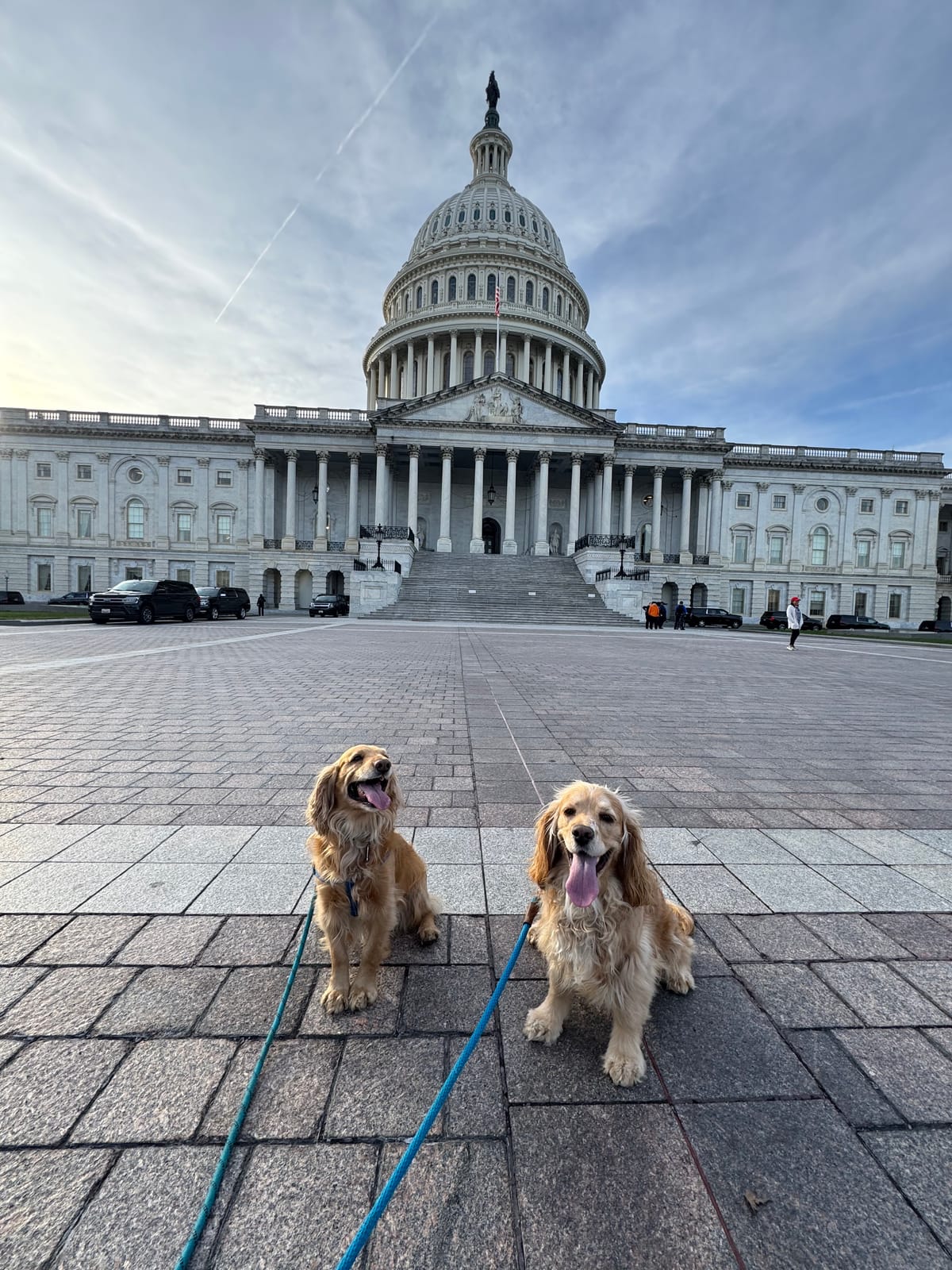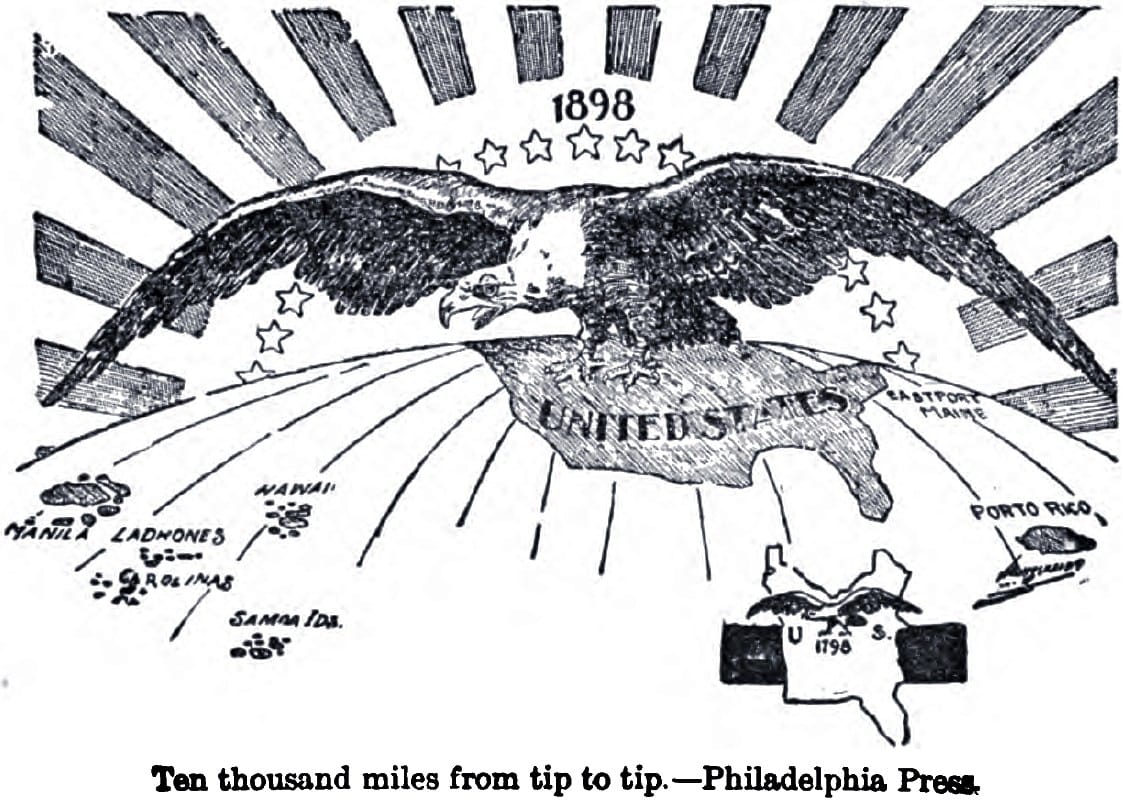Counting down the DOGE Days of Winter

Good afternoo from upstate New York, where we continue to celebrate the holidays with grandparents in the frigid climes of my birth. I hope you and yours are warm, dry, and safe today.
The holidays can be joyous, but also hard times for many of us: if you or someone you know is in crisis, remember that you always call or text 988.
Thank you to all of you for supporting and subscribing to Civic Texts this past year. I’ve been experimenting with format, frequency, topic, and style. If you feel inspired, please let me know what you’d like to see more (or less) of in the new year.
Today, I want to highlight news and developments that you might have missed this past week, or add context that you might not hear elsewhere.
That’s one of the ways I hope I’ve added value to your inbox since April. If I’ve failed, let me hear about that, too: some of you silently speak by unsubscribing, but I always love hearing from you before then!
Wither open government in 2025?
I value the Horizons newsletter that the Open Government Partnership (OGP) began publishing this last year. From pieces on street crime and national security transparency to cryptocurrency, corporate ownership complexity, satellite imaging, white collar crime, artificial intelligence and corruption, justice and AI, and more, there’s much to appreciate and learn from in the archive.
Their argument that open government data is crucial for trustworthy AI is strong. Watch for subtle or overt conflict between proponents of authoritarianism blindness around regulatory agencies or public health and savery and the Silicon Valley oligarchs who have Trump’s ear and policymaking authority to begin 2025.
The Horizons year-end wrap, however, was missing key context about the history, present, and future of government transparency and accountability in the United States government.
As noted, “OGP was born in a moment of national security overreach,” when the United States had and continues to have serious issues “with overclassification, surveillance, and misinformation that was especially acute during the George W. Bush administration.”
Let’s be clear: OGP did not act as a platform for US civil society to achieve meaningful, lasting reforms in any of these areas under Obama. It played that role in other nations.
As the world knows, the USA had an even worse issue with official disinformation during the Trump administration, along with corruption — along with the pre-existing issues.
The Biden administration refused to co-create commitments that would address any of these problems, much less what ailed US democracy.
To US government officials, OGP has been a tool for other nations, not Americans.
And on that count, OGP was a key part of helping Brazil to enact a freedom of information law. I talked about that when I moderated a plenary in the first global open government summit in Brazil in 2012, in dialog with ministers from Libya and Tunisia. Close to ”peak open“ in retrospect. https://youtu.be/PbGZZIwSMZk?si=o4k2D_02gInfHJ8w
When Joseph Foti claims that the founding of OGP created an “international moment to make public progress on these issues,” that’s true. But OGP was not part of establishing “more checks and balances in these areas” in the USA. These were downstream of the disclosures by Edward Snowden and the advocacy of organizations in Congress, not commitments in an action plan.
OGP remains weirdly disconnected from the USA, despite the Secretariat and Support unit being based here. In a post on public participation, their staff link to the Federal Register notice from March and describe the guidance and toolkit as “promising,” though both are now out — and this White House did not encourage mainstream participation in their co-creation.
That guidance is good, but if OGP thinks the next administration will be committed to engaging all Americans in decision-making, I have a lovely bridge to sell them in Brooklyn.
The US government adopted strategic silence around open government and OGP domestically, did not co-create the 4th or 5th NAP, and refused to add a challenge commitment that reflected civil society priorities — like the PRESS Act.
OGP should stop rewarding the US government for openwashing instead of calling a toolkit and guidance promising.
An open question for 2025: if New York City co-creates an open government plan in the next six months — or if the U.S. government does so over the year. More likely: repeals and changes to transparency and accountability policies, personnel, and programs. Stay tuned.
Subscribe to Influence Brief!
Anna Massoglia is one of the best researchers on money in politics and political influence that I know. She’s done fantastic work at OpenSecrets and is now launching a newsletter that I predict will become a must-read in 2025: InfluenceBrief.com.
As she says, transparency has never been more critical. Please consider subscribing.
Reading the tea leaves of presidential appointments and imperial pronouncements

Last week, President-Elect Trump has kept announcing nominees. He also sank a bipartisan agreement on a continuing resolution to keep the U.S. government open, demanded that the House raise the debt limit in a second bill, and then saw 38 Members of his party vote against doing so.
When the House voted a third time on Friday, 34 Republicans voted against it, which meant Speaker Johnson had once again needed to depend upon House Democrats to keep government functioning.
While Trump spiked the football, it was an early signal that his power in the party isn‘t as absolute as he and his partisans would have Americans believe.
Watch for this dynamic to persist in 2025, when Republicans will have a 217-215 majority until special elections replace the Members Trump appointed to his administration.
As my colleague Daniel Schuman highlighted, Republicans in both chambers will be effectively operating in coalition governments with historically thin voting margins — contrary to what you might hear online or on Fox, 2024 was not a landslide election that gave the GOP supermajorities.
It’s very much an open question whether Speaker Johnson and Majority Leader Thune will be able to corral these factions better than in 2017 to keep the government open and raise the debt ceiling.
The future of Trump’s nominees are also an open question, given how historically unqualified some are to lead vast departments.
I keep reading calls for unity, but that’s not credible in the absence of apologies and restitution from Trump that we know will never come.
In my view, human rights, the rule of law, & use of AI/drones in war — much less domestically against American citizens — should be Rubicons for all of us.
The way deportations of undocumented immigrants are carried out & Middle East & European wars are resolved will matter.
It’s not hard to hear echoes of history around federal police putting families in camps for deportation.
A less obvious issue for people considering servicing or remaining will be whether the work civil service workers is valorized as public service vs demonized as the deep state or useless by Elon Musk & his “DOGE.”
For me, anyone whose loyalty always lies with the Constitution first earns the benefit
of the doubt. Putting country over party or any leader is what true patriots do.
There is no singular “civic tech” community any more, it there ever was. Trump has lost progressive folks.
Any unity will depend on the next White House saying Americans aren’t enemies because they’re Trump’s political opponents, members of a free and independent press reporting the facts, doctors or scientists defending the efficacy of vaccines, election workers refuting lies of fraud, or folks who live in DC.
No apologies or restitution will mean no shared bridges into the future for all Americans, nor pathways into government service — only out of it.



